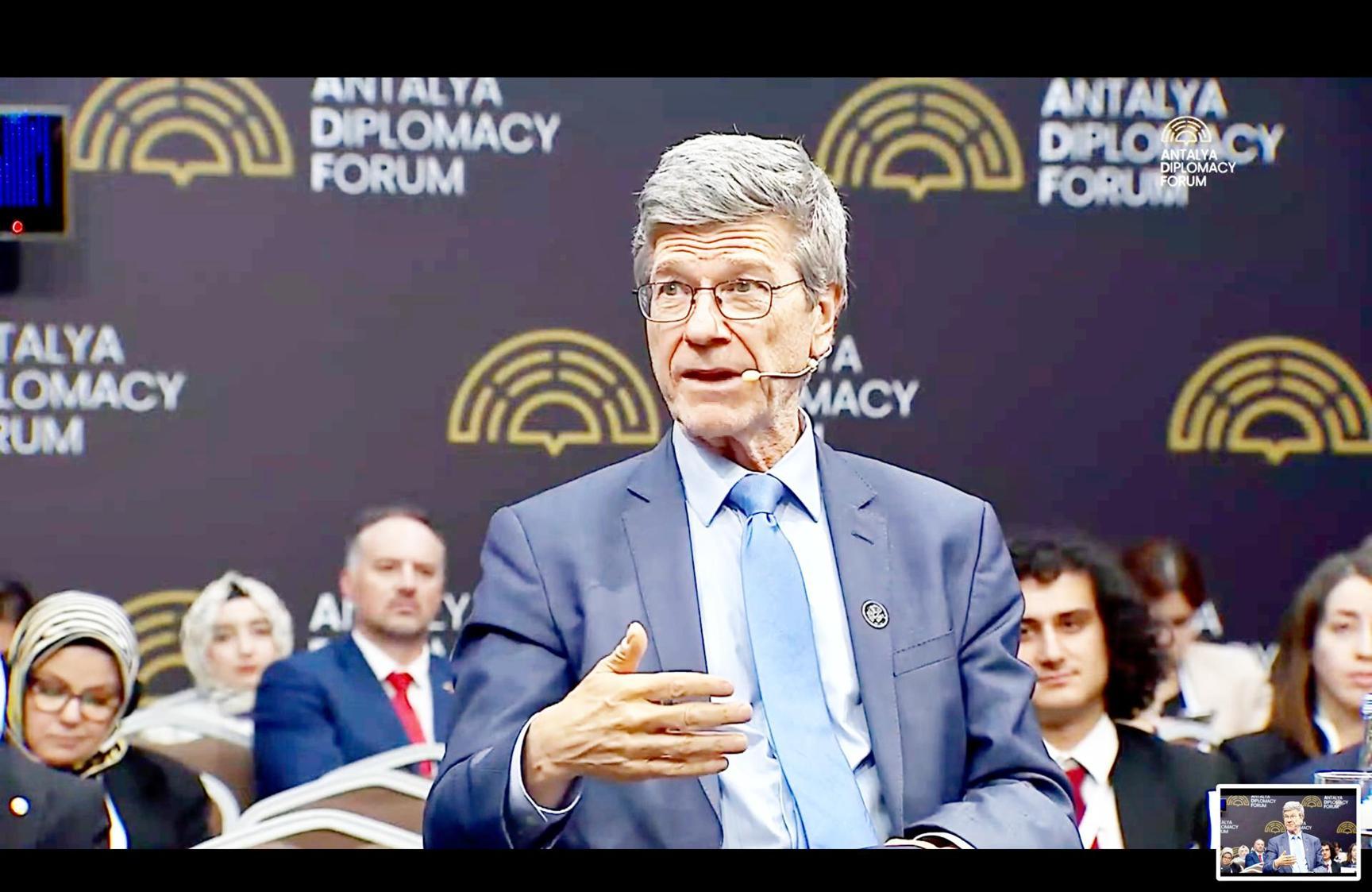George Sanzila
Africa-Press – Namibia. Economist and public policy analyst, Professor Jeffrey Sachs, has heavily criticised US president Donald Trump’s trade policy agenda, describing it as one of the worst trade policies in history.
He said this during a panel discussion on the topic “Protectionism: The End of Globalisation” at the 4th Antalya Diplomacy Forum underway in the resort city of Antalya in Turkey.
The United States recently announced what it termed “reciprocal tariffs,” affecting trade with countries across the world, including Namibia.
Sachs said, the United States’ trade deficit was because of reckless government spending that has surpassed national income, and therefore the blame should not be placed on its trading partners.
“If you pick up a credit card and you go shopping and you end up with a large credit card debt, you’re running a trade deficit with all those shops. It will be strange if you then blame all the shop owners for having sold you all those things. That’s the level of understanding of the president of the United States. All that is happening is the United States is outspending its national income. We have a big credit card in the United States; it’s called the government,” he said.
He said the US government spends close to US$2 trillion annually more than it makes in revenue and this trend is exacerbated by a lax tax system. “The United States does not tax Americans for transfers emanating from its spending because the congressmen who vote on the budget got into office with their campaign paid for by rich people who don’t like taxes. So, the political system says, ‘Spend, but don’t tax us’, and so we run a chronic deficit in the United States. For that, Donald Trump blames the world. I would fail him if he were in my class,” stated Sachs, who is also a professor of economics at Columbia University in the US.
The professor further said there was no winner in a trade war, as trade, in and of itself, was mutually beneficial. “In two days, when the announcement came, the world lost US$10 trillion of market capitalisation. His idea is that somebody must win or lose. If you stop trade, everybody loses.
Musk-factor
He cannot understand that concept. Even the rich people that gave him the money to get into office, including Elon Musk, who later became his prime minister, started saying, this does not make sense,” said the professor tongue-in-cheek.
Speaking during the same discussion, Mehmet Simsek, Turkish minister of treasury and finance, expressed similar sentiments, adding that although protectionism is nothing new, the latest development was unprecedented.
“If you look at post-global financial crises, the number of annual trade restrictions has gone up dramatically. Last year, there were more than 3 200 trade restrictions. That is almost 11 times higher than what it was pre-global financial crises. This has been the trend, but what we have seen over the past week or two is clearly a new level. This goes into an all-out trade war, and that’s worrisome,” moaned Simsek.
He noted that countries need to come up with sound policies and structural remedies to protect their economies, adding that protectionism in the extreme will create more social inequalities in a world already plagued by stagnated global growth, high indebtedness and an impending climate crisis.
Lesotho
Professor Sachs continued to disapprove of Trump’s reciprocal tariffs, particularly on smaller nations such as Lesotho, stating that the reasoning behind such measures was puzzling.
The small southern African country was slapped a with 50% tariff on its imports in the United States, the highest among all the countries, when reciprocal tariffs were announced.
Lesotho exports over 75% of its output to the United States, with textiles making up most of such exports.
Sachs noted that the reason why the market economy exists is because of the forces of demand and supply, another economic concept less understood by Trump. “You can’t believe that any country would do this. I work for my employer, which is my university. I run a trade surplus with my university, and then run a big trade deficit with the grocery store where I buy my groceries from. If I buy shoes, I run a trade deficit with the shoe store, and so forth. Trump’s idea is that you should run a trade balance with everybody. You don’t have to have a trade balance with every transaction that you do with somebody. Trump said, Lesotho sells us more than what we buy from them, so they are cheating us. That is delusional,” noted Sachs.
Namibia
Namibia was hit with 21% tariffs on its exports to the United States, a development likely to undermine progress made, particularly under the African Growth and Opportunity Act (Agoa). The Namibian government recently expressed concern over the situation, noting the measure could result in unfair market conditions for Namibian products to compete fairly within the US market.
Agoa is a trade arrangement that provides sub-Saharan African countries duty-free access to the US market. Namibia exports goods such as precious stones, fish and beef, among others, industries that employ thousands of Namibians.
The three-day forum themed “Reclaiming Diplomacy in a Fragmented World” is being attended by more than 500 representatives from around the world, among them Heads of State, ministers, diplomats, academics, business leaders and parliamentarians. It is organised by that country’s foreign affairs’ ministry to look at global issues, including conflicts, economy, climate change, food security and artificial intelligence.
The ultimate objective of the gathering is to re-evaluate diplomacy in concerted efforts to find solutions to regional and global issues.
It was officially opened by the president of Turkey, Recep Tayyip Erdoğan on Friday.
Source: neweralive
For More News And Analysis About Namibia Follow Africa-Press






